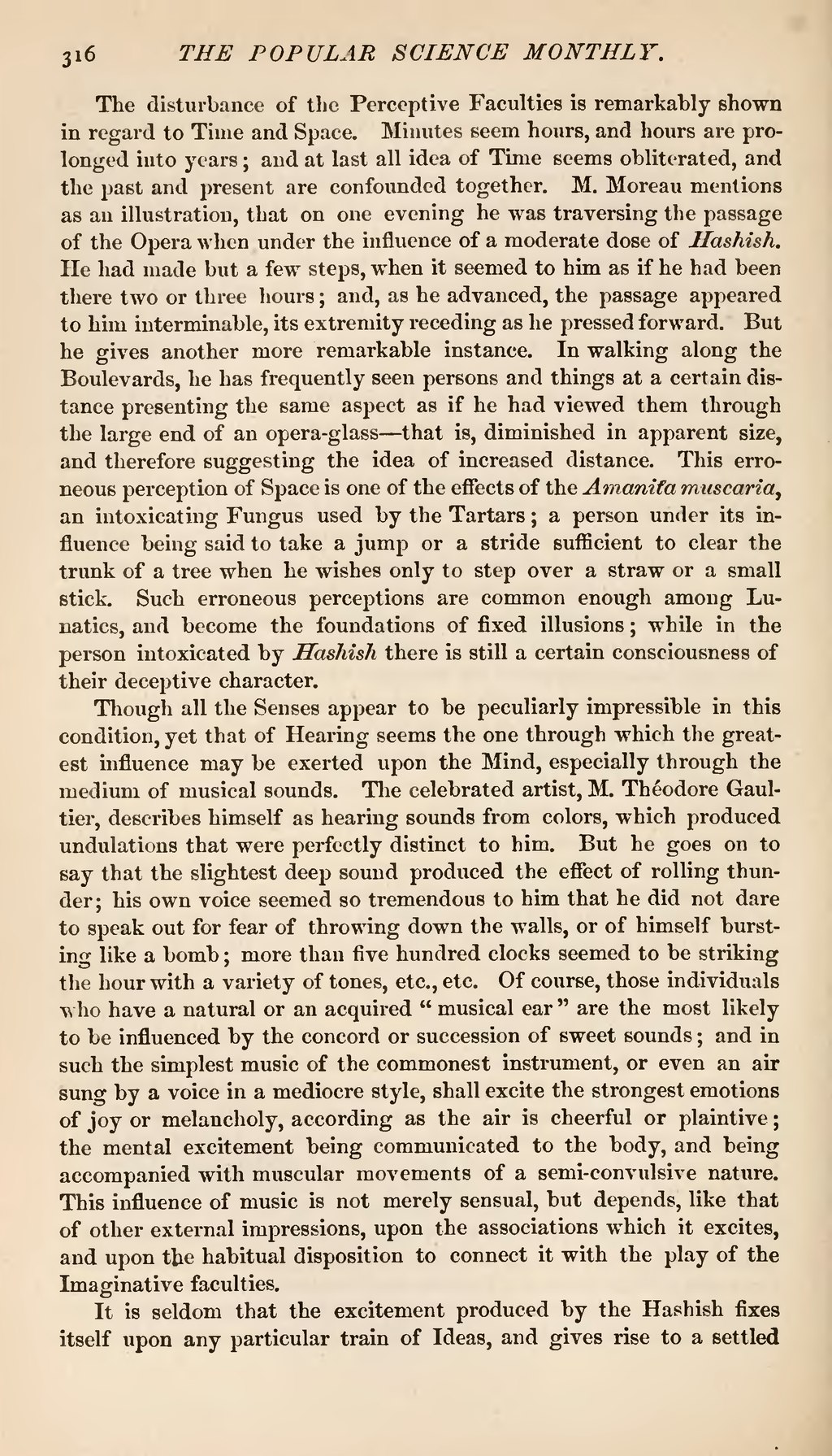The disturbance of the Perceptive Faculties is remarkably shown in regard to Time and Space. Minutes seem hours, and hours are prolonged into years; and at last all idea of Time seems obliterated, and the past and present are confounded together. M. Moreau mentions as an illustration, that on one evening he was traversing the passage of the Opera when under the influence of a moderate dose of Hashish. He had made but a few steps, when it seemed to him as if he had been there two or three hours; and, as he advanced, the passage appeared to him interminable, its extremity receding as he pressed forward. But he gives another more remarkable instance. In walking along the Boulevards, he has frequently seen persons and things at a certain distance presenting the same aspect as if he had viewed them through the large end of an opera-glass—that is, diminished in apparent size, and therefore suggesting the idea of increased distance. This erroneous perception of Space is one of the effects of the Amanita muscaria, an intoxicating Fungus used by the Tartars; a person under its influence being said to take a jump or a stride sufficient to clear the trunk of a tree when he wishes only to step over a straw or a small stick. Such erroneous perceptions are common enough among Lunatics, and become the foundations of fixed illusions; while in the person intoxicated by Hashish there is still a certain consciousness of their deceptive character.
Though all the Senses appear to be peculiarly impressible in this condition, yet that of Hearing seems the one through which the greatest influence may be exerted upon the Mind, especially through the medium of musical sounds. The celebrated artist, M. Théodore Gaultier, describes himself as hearing sounds from colors, which produced undulations that were perfectly distinct to him. But he goes on to say that the slightest deep sound produced the effect of rolling thunder; his own voice seemed so tremendous to him that he did not dare to speak out for fear of throwing down the walls, or of himself bursting like a bomb; more than five hundred clocks seemed to be striking the hour with a variety of tones, etc., etc. Of course, those individuals who have a natural or an acquired "musical ear" are the most likely to be influenced by the concord or succession of sweet sounds; and in such the simplest music of the commonest instrument, or even an air sung by a voice in a mediocre style, shall excite the strongest emotions of joy or melancholy, according as the air is cheerful or plaintive; the mental excitement being communicated to the body, and being accompanied with muscular movements of a semi-convulsive nature. This influence of music is not merely sensual, but depends, like that of other external impressions, upon the associations which it excites, and upon the habitual disposition to connect it with the play of the Imaginative faculties.
It is seldom that the excitement produced by the Hashish fixes itself upon any particular train of Ideas, and gives rise to a settled
